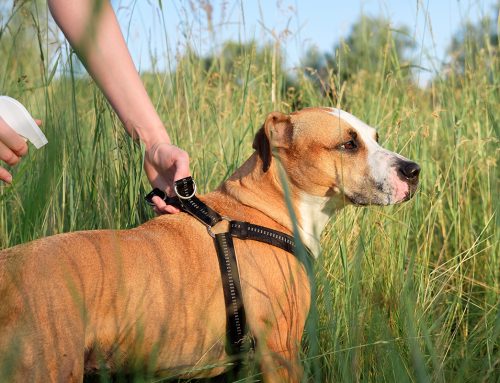Congratulations on the adoption of your new puppy. Are you prepared for this wonderful adventure? The first year of your puppy’s life is sure to be full of joy and exciting milestones. Similar to a human baby, your puppy needs your guidance to help them learn to interact appropriately with the world around them. By practicing patience and consistency, you can give your puppy the solid foundation they need to become a happy, confident, well-rounded adult dog. Read our Aloha Veterinary Hospital team’s guide to navigating your puppy’s first year.
#1: Let your puppy learn from their littermates
Learning proper canine etiquette and communication is important for your puppy’s development. When puppy littermates roll around together, they are doing more than simply having fun. They are also learning from each other. That’s right, puppies learn from their siblings—most importantly bite inhibition. Puppies learn to understand the injury and pain their bites can cause others from their littermates’ reactions to their nips. Their littermates’ cries and retaliating bites teach your puppy to not nip as hard. Your puppy may continue to test their biting when you bring them home, and you should react by crying out loudly or by saying, “Ouch!” in a high-pitched voice similar to a puppy’s reaction, which is usually enough to convey your discomfort. Of course, we don’t recommend you bite your puppy back!
If your puppy continues to bite regardless of your reaction, give them an appropriate chew toy. You can also try turning your back to your puppy, ignoring them until they settle down. Your puppy should stay with their littermates and mother until they are at least 8 weeks of age, because puppies who are taken away from their mother too early—especially before 6 weeks of age—are more prone to negative behaviors such as:
- Separation anxiety
- Increased fear and nervousness
- Excessive barking
- Food or toy guarding
- Aggression
- Potty training issues
#2: Begin socializing your puppy right away
Puppy socialization is the process of ensuring your puppy experiences positive introductions to a variety of people, animals, sights, sounds, situations, household appliances and items, and grooming tools. Socializing your puppy early provides them with the following long-term benefits as they age:
- Increased confidence, making them a less fearful or shy adult
- Trainability
- Interacting well with other animals and people
- Well behaved
- Coping well with change
- More tolerant of handling during veterinary care
- Welcomed to pet-friendly establishments
#3: Establish your puppy’s health care cornerstone through regular wellness screenings
Your pet’s first year is a critical developmental period, which sets the foundation for their long, healthy, and happy life. Your veterinarian will provide your puppy’s overall health care, vaccinations, and screenings during wellness exams. Puppies should have three to four wellness exams between the ages of 8 and 16 weeks. During these visits, your veterinarian becomes acquainted with your pet’s personality and temperament, establishes your pup’s health baseline through diagnostics, and creates a custom health management plan that they will adjust as your furry pal grows.
#4: Protect your pet by having them spayed or neutered

Spaying or neutering your puppy provides them with a happier, healthier, and longer life in comparison with intact (i.e., unspayed or unneutered) pets. In addition to preventing unwanted litters and reducing pet overpopulation, these procedures reduce pets’ health and behavior problems, including:
- Certain cancers — Some cancers, including mammary and testicular cancers, can be prevented.
- Reproductive issues and emergencies — Spay and neuter procedures can prevent conditions such as uterine infection (i.e., pyometra), false pregnancy, and birthing emergencies (e.g., dystocia) in female dogs, and prostatitis and benign prostatic hyperplasia (i.e., enlarged prostate) in male dogs.
- Heat cycles in female dogs — Without ovaries, spayed pets do not experience an estrus cycle and the associated discharge, altered behavior, and attraction to male pets.
- Hormone-induced behavior — Spaying and neutering may reduce male and female hormonal behavior, such as roaming, aggression, and territorial marking. However, pets who already exhibit these problems often require professional training to completely resolve the issues. Some pet owners report that their pets are generally calmer after being spayed or neutered. However, this result is not guaranteed.
Your puppy’s first year is important, and we are here to guide you every step of the way. Schedule your puppy’s wellness visits with our Aloha Veterinary Hospital team, and set them up for a lifetime of health and happiness.







Leave A Comment